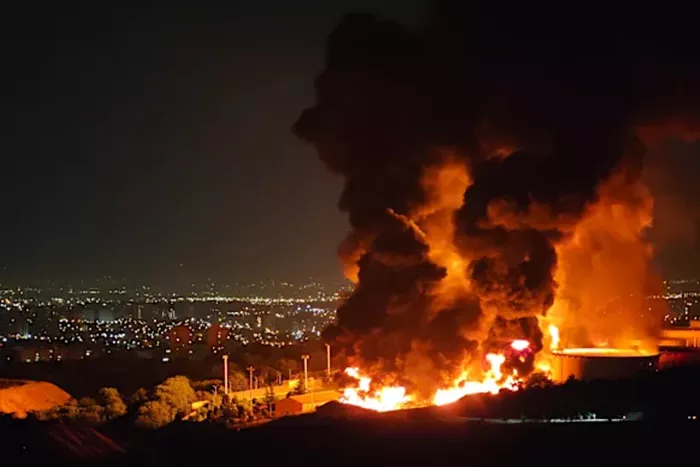Oil prices climbed at the start of the week after an Iranian missile strike damaged Israel’s Haifa refinery, raising concerns of broader disruptions in Middle Eastern energy infrastructure.
The weekend attack led to a partial shutdown at the Bazan-operated Haifa refinery. Bazan confirmed the damage was limited to pipelines and transmission lines, noting that core refining operations remained functional. Reports suggest Iran launched approximately 40 missiles at the Haifa region late Saturday.
“The refining facilities continue to operate, while some downstream facilities at the complex have been shut down,” Bazan said.
In retaliation, Israel reportedly struck multiple energy targets in Iran, including two gas treatment plants in the south and an oil storage site in Tehran. The strikes triggered fires at two or three fuel storage tanks.
As hostilities continued, Iran launched further missiles targeting Tel Aviv and Haifa, fueling fears of an escalating regional conflict. Analysts warn that if tensions reach the Strait of Hormuz—a key shipping lane through which over 20 million barrels of oil pass daily—global crude supplies could face significant disruption.
Further Israeli attacks on Iranian oil infrastructure remain a possibility, analysts say.
“If Iranian crude exports are disrupted, Chinese refiners—the sole buyers of Iranian barrels—would need to seek alternative grades from other Middle Eastern countries and Russian crudes,” said Richard Joswick, head of near-term oil analysis at S&P Global Commodity Insights.
Joswick noted that such a shift could increase freight costs and insurance premiums for tankers, compress the Brent-Dubai price spread, and squeeze refining margins, particularly across Asia.
The growing risks are already impacting shipping behavior. Tanker operators are reportedly avoiding the Persian Gulf region. Lars Barstad, CEO of Frontline, the world’s largest oil tanker company, stated, “Trade is going to become more inefficient and, of course, security has a price.”


